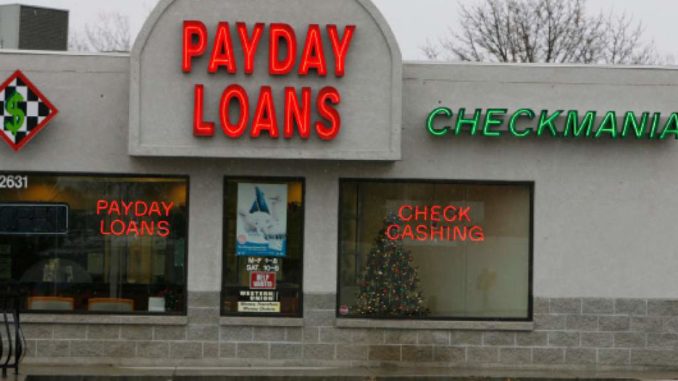
The payday lending industry in Utah is booming according to new yearly data from the Department of Financial Institutions. There are more physical stores in the state than McDonalds, Burger King, Subway and Wendy’s combined!
Hundreds of thousands of payday loans were issued in 2016, from a total of 553 storefront operations. These are divided between 51 payday loan companies and 69 title loan firms that offer payday loans, and there are also 28 internet-based companies that are registered in the state.
What Is A Payday Loan?
A payday loan is a small short-term loan product designed to buffer the borrower’s finances until their next pay check is due. This helps cover unforeseen and emergency expenses that were not included in their budget. For example loans from UtahCashHelp, an online loan request service, range between $100 and $1000 and are usually outstanding for just two weeks. The loan must then be repaid in full along with the finance charge on the agreed upon date. Initially there are no installments or interest as it is understood when compared to regular personal loans from the bank or other large financial group.
Payday Loans In Utah
Payday lenders say their service is an important lifeline for Utah citizens who find themselves in temporary financial strife, but do not typically have access to other funding sources like savings or credit cards. The Consumer Lending Association note that on average payday loans are cheaper than relying on overdrafts, or resorting to bouncing checks or letting utilities get disconnected and reconnected. Because people with bad credit are often approved, it also saves them from going to loan sharks or other unregulated sources of finance.
Borrowers legally must be checked to determine their ability to repay the loan (which may involve gathering and verifying income and carrying out a credit check). Yet should borrowers fail to make the repayment on time, they will then be subject to interest averaging 459% per year (down from 482% in 2015). Some lenders in the state charged up to 1,408% in 2015.
Although these figures may seem high, it is important to recognize the short-term nature of payday loans. State law also dictates that interest can only be charged for a total of 10 weeks, so the overall impact is comparable to other forms of credit and emergency funding options. Using the average of 495%, interest on a $100 loan is just $8.81 per week.
Furthermore before payday lenders can carry out any legal action against those who refuse to pay, they must write to them and offer an extended payment plan at zero interest.
One Loan At A Time
One aspect of payday lending in Utah that is to be tightened is the ability of borrowers to take out more than one payday loan at a time. This loophole allowed borrowers to use a new loan to help pay an existing loan. State legislators hope that the Consumer Protection Bill, which passed the House unanimously in January, will protect citizens from getting stuck in a debt cycle and keep then within the 10 week interest limit instead.
Payday Loan Alternatives
Of course despite being a much needed credit option for many, there are still alternatives that you might want to consider.
If you require cash and already have a credit card, you should have the option for a ‘cash advance’ at an ATM machine or transferred to your current account. APR is around 30%.
Interestingly the term cash advance actually originates from employers and many will still give you an advance on your wages if you are in good standing. This is often then averaged out over the year, so you don’t find yourself out of pocket the following pay day.
Charities and groups within your local community might also offer assistance programs, and state and federal programs such as the federal Low Income Home Energy Assistance Program (IHEAP) are available to help those on a low-income pay heating and cooling bills.




